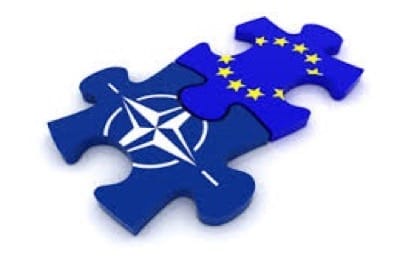The “rules-based international order”—how often have we heard that phrase? It’s regularly used on the news, in newspapers, and on current affairs programmes. It even appears in government policy papers. Its constant repetition has conferred a legitimacy it does not deserve. There is a vague perception that the “rules” in question refer to the United Nations Charter and to international humanitarian law.
That, however, is not the case. For instance, Israel is considered a fully compliant member of the “rules-based international order”, while China and Cuba are not. Yet since its creation, Israel has violated the UN Charter and trampled on international humanitarian law—and still remains a member of this so-called rules-based club. So what, then, is the “rules-based international order”?
Put simply, it is the mechanism by which US monopoly capitalism maintains its global dominance. The “rules” are underpinned, not by international law, but by US military and economic power. This reality must be sugar-coated to make it palatable—after all, we live in an enlightened age where might is no longer right, mar dhea!
In what he termed the “secularisation of the theological” ,Engels noted that jurisprudence has always held a special place in bourgeois society, where “human justice takes the place of dogma and divine right, and the state takes the place of the church.”In medieval society, the feudal class relied on the Church to uphold its rule. Anyone who dared challenge feudalism was condemned as a heretic and cast out from society. The bourgeoisie use the law in much the same way.
The United Nations Charter and the international law derived from it reflect the balance of power at the end of the Second World War, from which the US emerged as the only major belligerent with its territory unscathed. It was the dominant power and the sole possessor of the atomic bomb. Yet its position was not unchallenged: the USSR and the fledgling international community of socialist states, despite suffering immense human and material losses in defeating fascism, were strong enough to contest its hegemony. The UN Charter reflected this reality.
With the restoration of capitalism in the former USSR and the People’s Democracies, the US and its allies—or vassals—in the NATO/EU bloc were no longer willing to abide by the UN Charter and international law. Thus, they bombed Belgrade, invaded Afghanistan and Iraq, and dismembered Libya—all without UN sanction.
The “rules-based international order” was conceived to legitimise this unipolar world dominated by US imperialism. It is treated as sacred dogma, which only “bad actors” dare question or challenge. Any country—even capitalist ones—that refuses to accept US hegemony is condemned as a heretic and punished through sanctions, colour revolutions, terrorism, or outright invasion.
Of course this is nothing new, the dominant capitalist powers have always sought to legitimise colonialism and domination. In 1823 the US proclaimed the Monroe Doctrine, allegedly to protect the newly emerging South American states, but in reality, to give a pseudo-legal cover to its claim over the area. Between November 1884 and February 1885, 14 European countries plus the US as an observer met at the Berlin Conference to divide Africa between the dominant European powers. The Treaty of Versailles gave legal cover to the division of the colonies of the defeated powers in WWI among the victors. It should be recalled that the revolutionary Irish government was denied the opportunity to plead a case for independence at the Peace Conference.
As the challenges to the”rules-based international order” grow, the response has been to resort to war or the threat of war. The NATO/EU proxy war in Ukraine and the Zionist genocide in Palestine being the most obvious examples. Whilst the UN is in need of reform (for example, why should three nuclear armed NATO members have vetoes?) it offers a better hope to humanity than the NATO/EU Bloc “rules”.
We must all become heretics and reject the official ideology!






